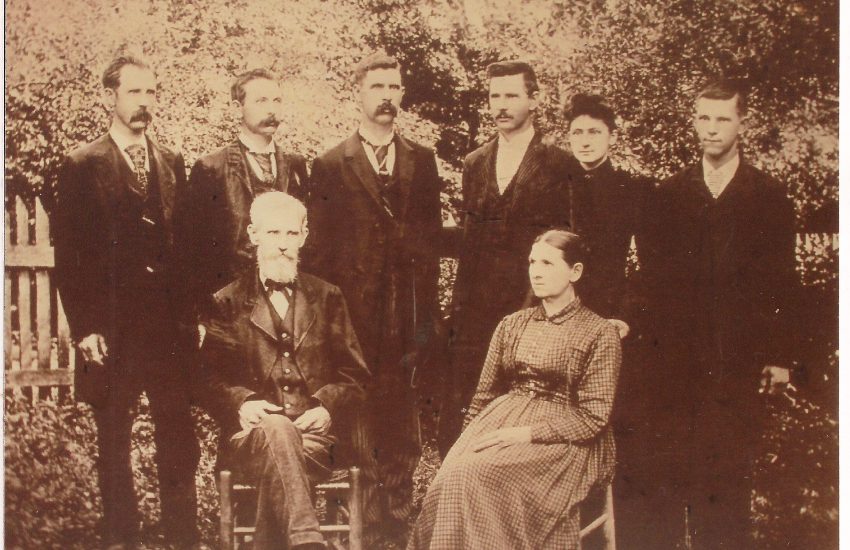Several years ago, a story aired on television about the life of Elizabeth “Liz” Murray, a young girl living in New York, who at the age of 16, was not only homeless, but her mother had died, and her father was a drug addict. In spite of the circumstances Liz had to deal with, she fought the odds and she won. Not long after her story was televised, a movie was made about her life. Liz’s parents were both drug addicts, and her mother, in addition to being a drug addict, was also an alcoholic. In the interview that I watched, Liz told how there was never any food in the filthy house she, her sister, and their parents lived in. She described how she would have to step over piles of feces crawling with maggots to get to her room. Her mother would often sell things out of the house when she was desperate for drug money, and once, she even sold Liz’s sister’s winter coat. Liz was teased a lot at school because her clothes smelled bad and she was dirty. Her parents eventually separated, and Liz stayed with her father until they lost the apartment when child welfare authorities found out she wasn’t attending school. She was put in a youth facility for a while, and after learning her mother had developed aids as well as tuberculosis, she put everything she could squeeze into a backpack, and at age 15, headed out on her own. Liz sometimes slept at friends’ homes, but not without asking to clean the house so she might earn the right to be there. But in spite of that, she felt as she was constantly inconveniencing everyone. At times she slept on park benches or in the subway. If it was cold, she rode the trains all night or would sleep in apartment hallways. Sometimes a couple of weeks would go by between baths, and there was the endless walking, walking, walking.
After Liz’s mother died, she decided she wanted to go back to high school. Her father, who also had aids, by then was living in a men’s shelter. To try and convince school authorities they had a home together, even though it wasn’t the truth, she brought her father to school with her one day. She was willing to do this because she didn’t want to back to a youth facility. After getting back into school, she poured herself into her studies. She studied everywhere ... in school hallways, libraries, stairwells in apartment building, and even though she was still homeless, she finished high school in just two years, acing many of her classes. Her senior year, she got a part-time job and was able to save enough to share an apartment. She won a college scholarship and decided not only that she wanted to go to college, but it was prestigious Harvard she would attend. The day the letter came telling her she had been accepted to Harvard, she made phone call after phone call screaming to the person on the other end of the line, “I’m going to Harvard! I’m going to Harvard!” At 19, she landed a job with The New York Times. And while some good things were happening in Liz’s life, the lives of her sister and father by this time had improved too. Her sister found a place to live nearby, and her father kicked drugs and had his own apartment. In spite of everything she went through growing up, Liz had this to say: “I’m not angry with my parents. They cared very much about me, and I loved them back. They were addicts since before both my sister and I were born, and probably should have never had kids. I’m grateful to them. They taught me things - they showed me which way not to go. But I also have good memories. I remember my mother coming into my bedroom at night, tucking me into bed. I remember her singing. If I could tell her anything today, I’d say, “Don’t worry about me anymore. I’m gonna be fine, and thank you for everything. And, I love you.”
I remember thinking as I watched the interview with Liz that if ever there were two people who had an excuse to sink in despair, and to follow in the footsteps of their drug addicts parents, it was Liz and her sister. But that amazing spirit Liz possessed prevailed. If only everyone faced with even slightly similar problems could be as strong as she was to overcome such hardships and difficulties, the problems created because of drug use might not be on almost everyone’s doorstep. Even in a small rural town like Livingston, just about everywhere you look, many families are suffering with problems that drug use brings about. The story about Liz is a good example that even though she grew up in a home where drug use was an everyday occurrence, she never participated herself. A phrase she used when she described her parents “they showed me which way not to go” is one of the reasons she succeeded in achieving what she set out to do.
Because the interview I watched was quite a number of years ago, I decided to try and find out what had become of Elizabeth Murray. Wikipedia’s information says this, in part: “She was born in the Bronx, New York, on September 23, 1980. She began attending the Humanities Preparatory Academy in Chelsea, Manhattan, graduating in two years. She was awarded a New York Times scholarship for needy students and was accepted into Harvard University in the fall semester of 2000. After leaving Harvard in 2003 to care for her ailing father, Liz Murray returned to the university in 2006 and graduated in June 2009. As of August 2009, she began taking graduate courses at Harvard Summer School with plans to earn a doctorate in clinical psychology and become a counselor. She is the founder and director of Manifest Living and a motivational speaker. Her bestselling memoir “Breaking Night” was released in September 2010. Her older sister, Lisa, graduated from Purchase College in New York State and is a school teacher for children with autism.” According to information on the internet, Liz Murray married James Scanlon, a classmate she attended high school with. They have two children, a son, Liam, and a daughter, Maya Jean. They make their home in New York City.

